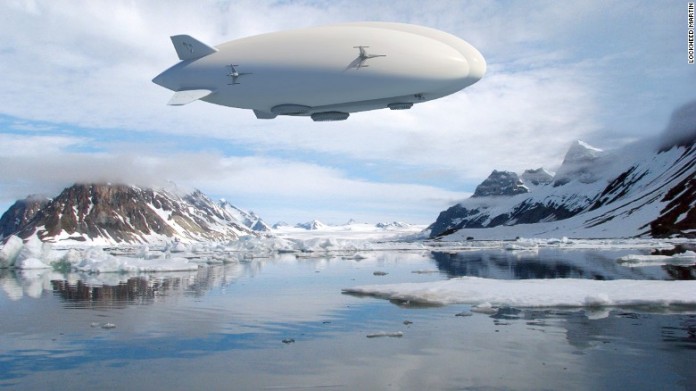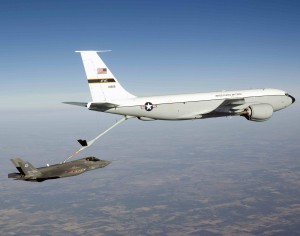
MOOSEPOOP, Alaska – Lackheed Martian Corporation announced the formation of a joint venture with Peckerbuilt Motors Company that will provide a unique new service to long distance truckers in remote areas. As a “real world” test, Lackheed Martian’s new LMH-1 hybrid airship will be used to refuel Peckerbuilt trucks on the Alaska Highway without the need for the trucks to stop. The two companies are collaborating to design and build the probe/drogue systems and radio communications necessary.

Joint Venture spokesman Hohlen D. Head said,
“We are addressing a critical need. Normally, an 18-wheeler averages about 6.5 miles per gallon, but in many cases the roads are unpaved and quite irregular with many switchbacks. This reduces mileage to as low as 2 miles per gallon, requiring frequent refueling. Our first thought was to use the airship to simply deliver loads of diesel fuel to waystations on remote highways. However, trucking executives told us that drivers use fuel stops as an excuse to do things like eat, sleep and attend to personal hygiene. In their view, this wastes time and reduces truck efficiency to an unacceptably low level.”

Mr. Head continued, “Through our vast experience with mid-air refueling of military aircraft we concluded that trucks could be refueled without stopping by using aircraft. However, unlike military applications the aircraft has to be able to fly low and slow enough to match a truck’s speed. The only two candidates were a helicopter and a blimp. Operating costs with a helicopter are far too high and their carrying capacity is limited. So, we decided to use the LMH-1. The U. S. government has already paid for the development costs and any other use is pure gravy for Lackheed Martian.”

Joint Venture Director of Research Dr. Phly Un Hie explained how the system will work. He said that the blimp and truck would be in radio contact and their respective speeds matched automatically by computer. A winged drogue is lowered from the blimp gondola and guided by a homing signal in the refueling probe mounted on top of the truck’s cab. Transfer of fuel from the blimp to the truck will take only a few minutes. A few drops of fuel may be spilled during the transfer operation but since diesel is relatively inflammable there is no hazard to the truck.
Mr. Krus N. DeRhodes, representing the Teamster’s Union, promised a vigorous protest against the loss of rest stops. He said, “The only blimps we want to see are over a football stadium.”

















